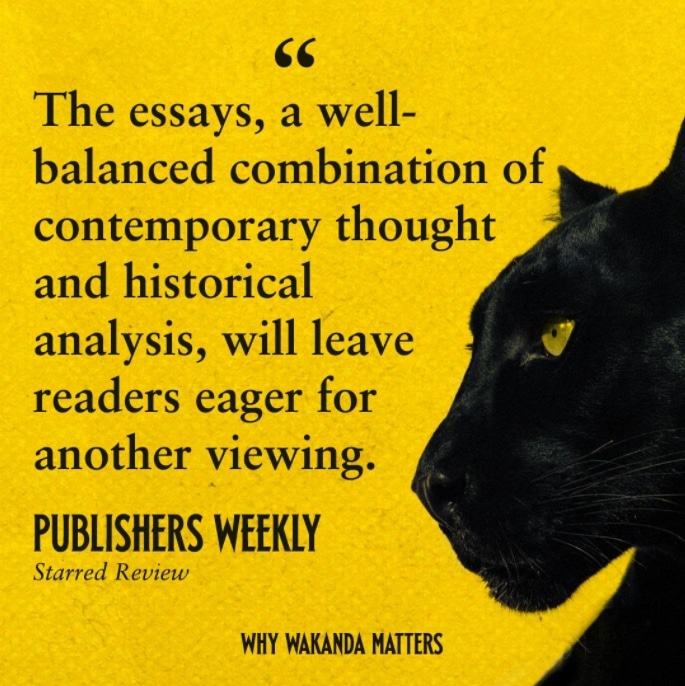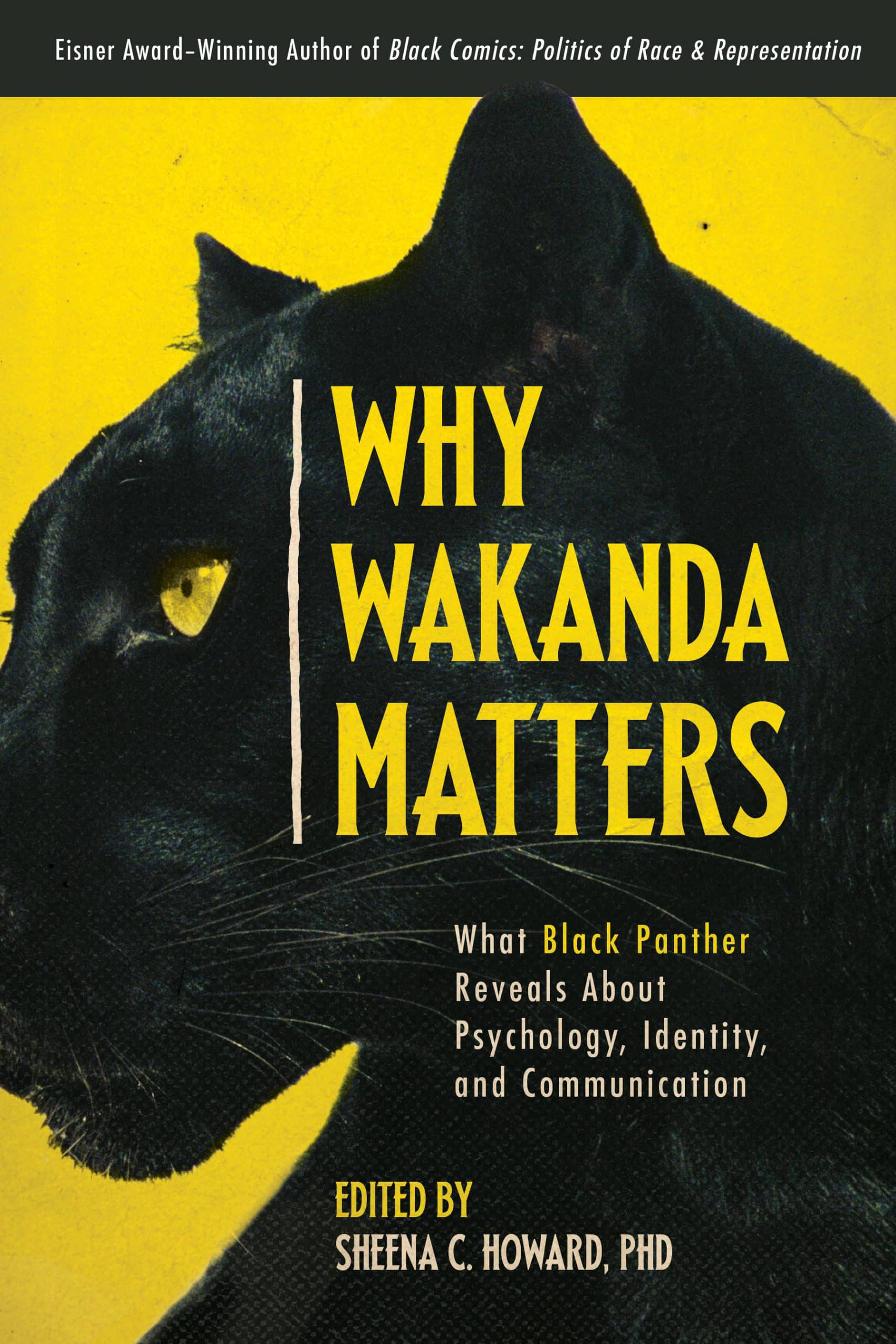In 2018, the Marvel Cinematic Universe finally delivered on something fans had been waiting a long time for: A feature film with a solo Black superhero.
Black Panther introduced viewers to the stunning world of Wakanda, a fictional African country with incredible technological advancements, and to T’Challa, a young man stepping into his role as king and taking up the mantle of the Black Panther title from his late father.
The unforgettable story, coupled with the film’s mega-success, has undoubtedly shaped the future of superhero cinema, in addition to genuinely changing viewers’ lives. Why Wakanda Matters gives this iconic film the in-depth analysis it deserves under the lens of the latest psychological concepts—as well as delving into the lasting cultural impact of this unforgettable story.
Edited by Sheena C. Howard, an award-winning author, filmmaker, and scholar, Why Wakanda Matters: What Black Panther Reveals About Psychology, Identity, and Communication features a collection of essays from leading experts in a variety of fields who offer insightful perspectives on topics such as:
- Cognitive dissonance: The important messages within T’Challa’s nuanced identity and eventual shift from nationalism to globalism.
- Intergenerational trauma and resistance: How N’Jadaka (aka Erik/Killmonger) identifies with the trauma that his ancestors have suffered.
- Social identity: How Nakia, Shuri, Okoye, and Ramonda—all empowered, intelligent, and assertive women of color—can make a lasting impression on women and girls.
- Collective identity: How Black Panther has created a shared fantasy for Black audience members—and why this is groundbreaking.
- Cultural and racial identity: What we can learn from Black Panther’s portrayal of a culture virtually untouched by white supremacy.
Fans of the movie and those interested in deeper discussions about the film will revel in this thought-provoking examination of all aspects of Black Panther and the power of psychology.





